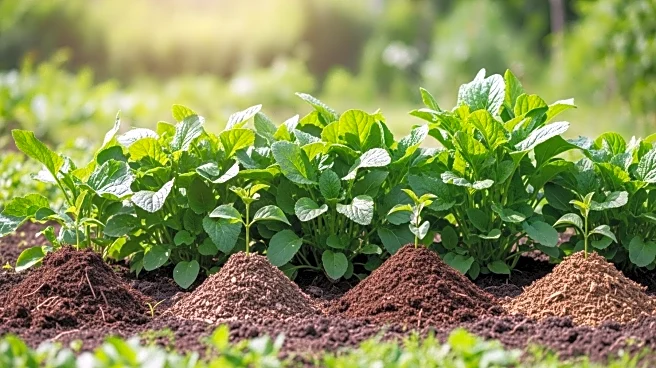What is the story about?
What's Happening?
The global organic fertilizers market is expected to grow significantly, reaching USD 38.57 billion by 2033, according to Straits Research. This growth is driven by increasing demand for sustainable agricultural practices, government initiatives promoting eco-friendly farming, and a shift towards organic food production. Organic fertilizers, derived from natural sources, offer benefits such as improved soil health and reduced chemical dependency. The market expansion is supported by rising consumer awareness of health and environmental sustainability.
Why It's Important?
The growth of the organic fertilizers market reflects a broader trend towards sustainable agriculture and environmental conservation. As consumers become more conscious of food safety and health, the demand for organic products is increasing. This shift has implications for agricultural practices, potentially reducing reliance on synthetic fertilizers and promoting soil health. The market's expansion also highlights the role of government policies in supporting sustainable farming, which could lead to long-term benefits for food security and environmental preservation.
What's Next?
The organic fertilizers market is likely to see continued growth as more countries adopt policies supporting sustainable agriculture. Technological advancements in bio-fertilizers and increased investment in organic farming infrastructure may further drive market expansion. Stakeholders, including farmers, policymakers, and consumers, will play a crucial role in shaping the future of the industry. As demand for organic products rises, companies may innovate to meet consumer needs and enhance product offerings.
Beyond the Headlines
The shift towards organic fertilizers represents a significant change in agricultural practices, with potential ethical and environmental implications. As the market grows, there may be increased focus on ethical farming practices and the impact of agriculture on climate change. This transition could lead to a reevaluation of traditional farming methods and encourage the adoption of more sustainable practices globally.














